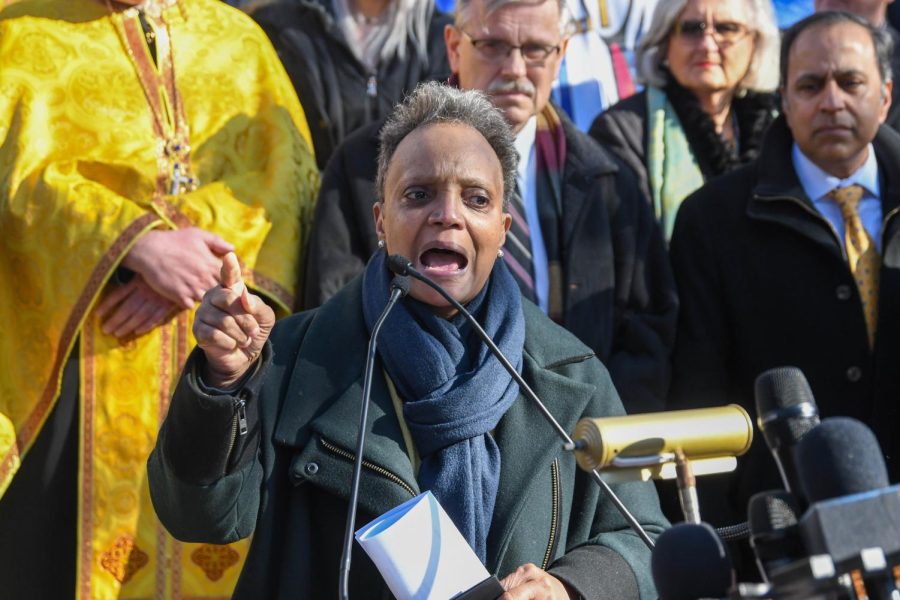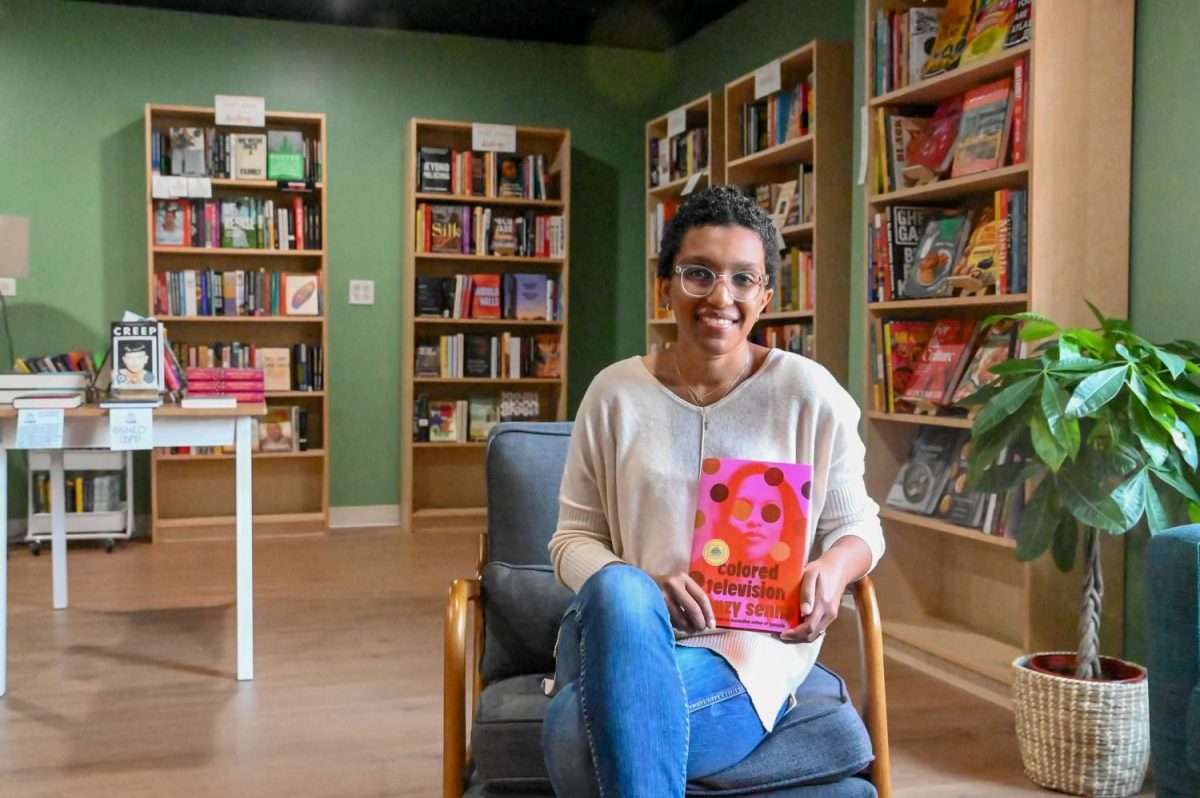Looking back at Lightfoot: Unpopular mayor seeks second term
Mayor Lori Lightfoot speaks at a rally on Feb. 27, 2022, in the Ukrainian Village neighborhood to support the war in Ukraine.
February 15, 2023
As Chicagoans compare candidates and some U-High students prepare to cast a ballot in the Feb. 28 municipal election, some students are reflecting on current Chicago Mayor Lori Lightfoot’s policies regarding policing, mental health clinics, sustainability and pandemic response.
After winning 74% of the 2019 runoff vote and all 50 wards, Ms. Lightfoot took office and has tried to address Chicago’s public safety, education and financial stability. She made history as the first woman of color and the first openly LGBTQ+ person to be Chicago mayor.
Despite weak approval ratings, she is running for a second term, but eight other candidates are coming for her job. If no candidate receives more than 50% of the vote this month, a runoff election will be held April 4.
Coming into office, Ms. Lightfoot had plans for increasing affordable housing, electing Chicago Public Schools’ board members and more. However, 10 months into her term, the pandemic began.
Sophomore Olin Nafziger believes Ms. Lightfoot responded well to the beginning of the pandemic.
“I remember in the first couple weeks of the pandemic she made a series of videos of her at different museums playing with penguins and in like empty museums and it made people feel good,” Olin said. “I feel like Chicago has done well compared to other major cities, and I think that she was a major part in that.”
While the majority of her term was impacted by the COVID-19 pandemic, Ms. Lightfoot’s efforts extended beyond pandemic safety measures.
Olin expressed dissatisfaction with Ms. Lightfoot’s police accountability measures, citing that she was a leader in the Police Accountability Task Force and believes she was elected over candidate Toni Preckwinkle because people thought she’d force the police to take accountability. Olin doesn’t think she’s followed through on that.
“There have been a lot of incidents in Chicago, since she’s become mayor, and I don’t think that she’s handled that well with forcing the police to take accountability,” he said.
Throughout her tenure, violence in Chicago grew by 66%, and following summer riots in 2020, she came under criticism for her response in ensuring neighborhood safety.
Senior Asha Patel, who will be voting for the first time, said she wants a mayor who will address issues of police brutality and gun violence.
“In terms of what I’m looking for in mayor is probably addressing more issues with the police and police brutality and in general just violence and the use of guns in Chicago.”
Another area of Ms. Lightfoot’s policy scrutinized due to the pandemic is the city’s mental health clinics, which were closed under former Mayor Rahm Emanuel. Activists from the organization Stop Chicago asked Ms. Lightfoot to invest in city-run mental health clinics in 2021, as they said the city and nation’s mental health crisis was compounded by the pandemic.
Asha thinks a lot of people are more in touch with their emotions are comfortable seeking support for their mental health, so reopening clinics would increase their ability to access mental health care.
“Clinics are definitely a good idea because not everyone can afford to go see a psychiatrist or get a prescription, so I feel like the more availability there is, the more the better,” she said.
On Jan. 7, Ms. Lightfoot said her alternative plan, the Trauma-Informed Centers of Care Network which funds community mental health organizations and Chicago’s five mental health clinics, was a more successful model that would be more relevant to Chicago’s 77 neighborhoods.
A longer-term plan Ms. Lightfoot laid out is the Chicago Works Five-Year Capital Plan, which she said it would address areas of need and combat climate change with sustainable projects. Following the unveiling of this plan, Ms. Lightfoot announced Chicago’s 2022 Climate Action Plan, which includes a zero-emissions transportation network, increased renewable energy investing and an organic waste collection system by 2025.
Asha says she’s prioritizing candidates’ potential for tangible change when deciding her vote.
Asha said, “After seeing the people who have been in power and seeing what has changed and what hasn’t, and what their goals were originally and what they were able to accomplish, will definitely impact who I will vote for.”












